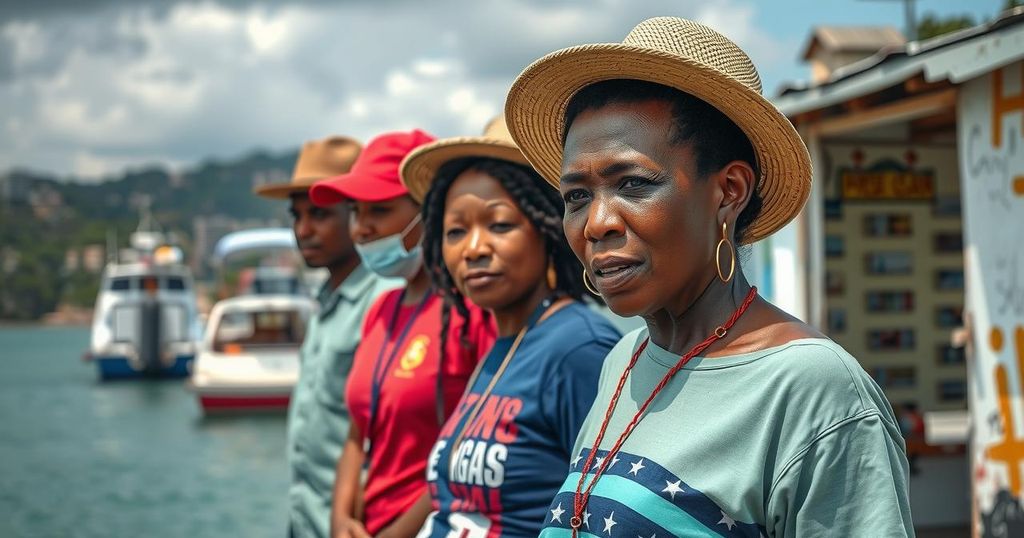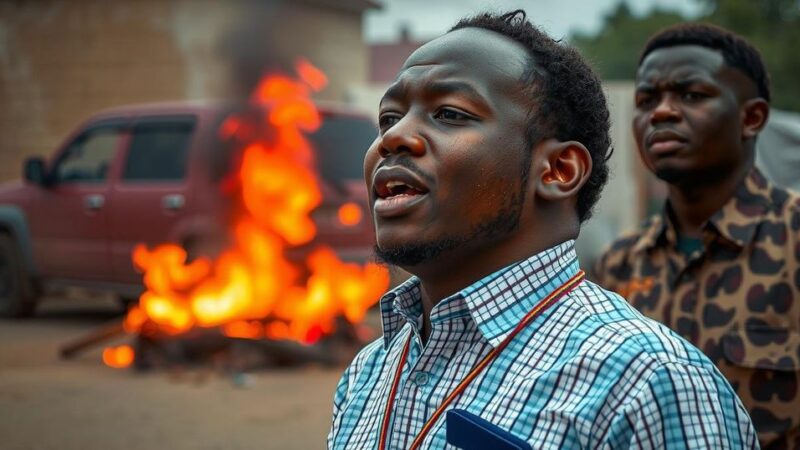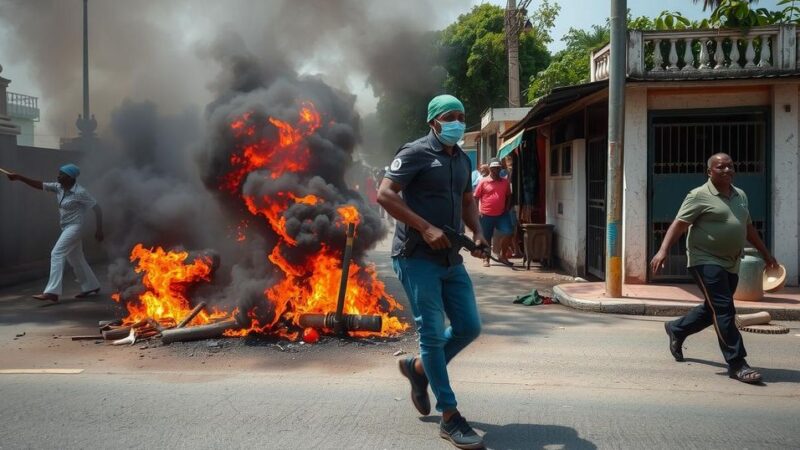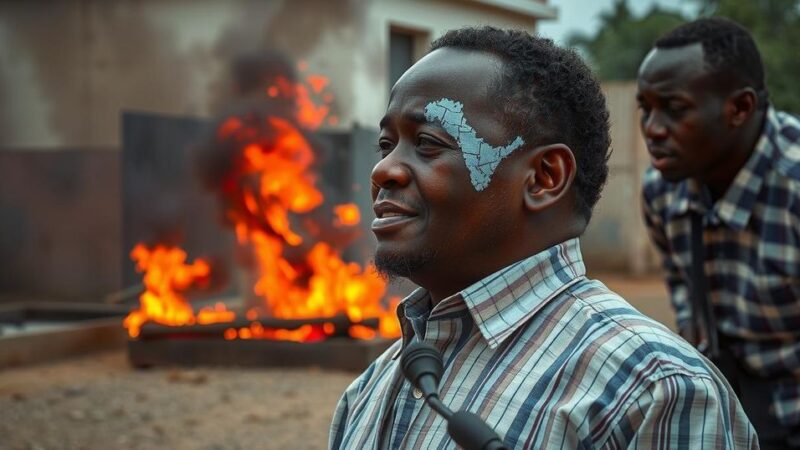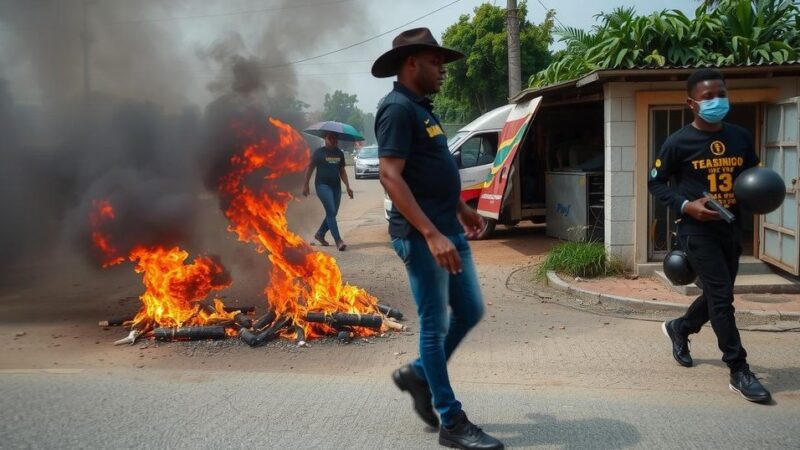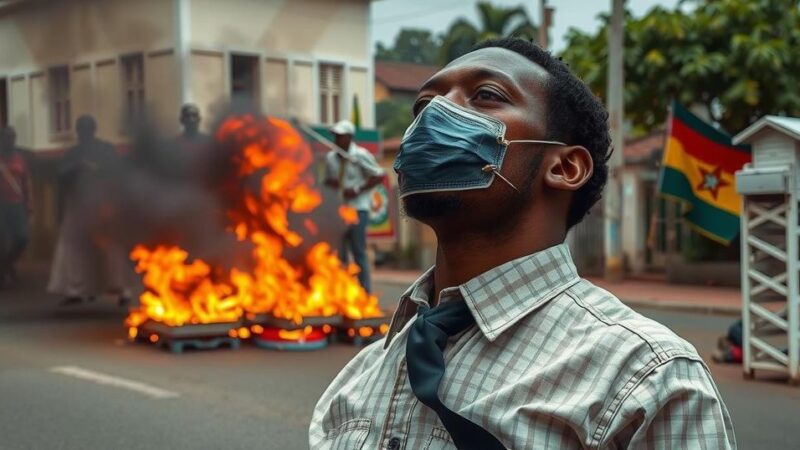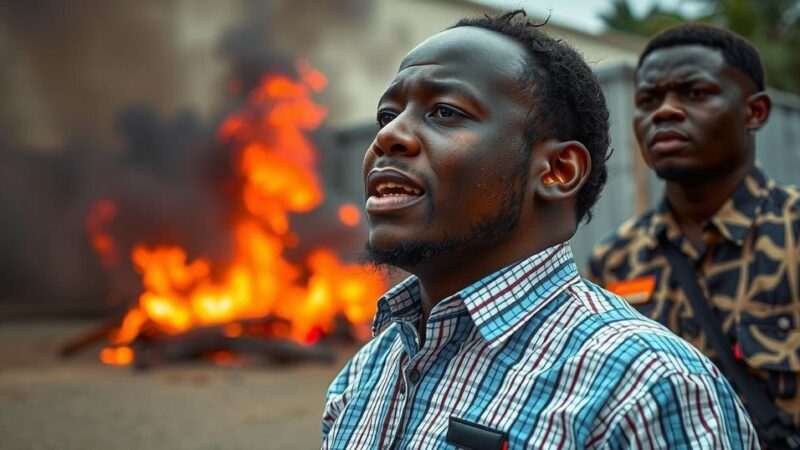Church organizations in Brazil are protesting the Dominican Republic’s policy to deport 10,000 undocumented Haitian refugees weekly, exacerbating conditions for Haitians in the country. Activists highlight that deportations are often linked to increased discrimination and hostility. The CLAMOR Network and church leaders demand an end to arbitrary deportations, upholding the rights and dignity of Haitian migrants amid a worsening humanitarian crisis in Haiti.
Church organizations have expressed strong opposition to the Dominican Republic’s initiative to deport 10,000 undocumented Haitian refugees weekly, a policy introduced by President Luis Abinader on October 2. Activists on both sides of the border between Haiti and the Dominican Republic have reported that this approach is exacerbating the already dire conditions faced by numerous Haitians residing in the Dominican Republic.
Father Agler Cherizier, a Scalabrinian priest, highlighted that the government justifies these deportations as necessary for national security. However, he argued that mistreatment of any foreigner is unacceptable and emphasized that the dignity of all human lives must be safeguarded through dialogue and mutual respect.
Sister Eugenia Vásquez from Fundación Ascala noted that the government’s rhetoric has fueled hostility towards Haitians, leading to increased persecution and danger for migrant families. The organization Ascala, along with the Latin American and Caribbean Church Network, criticized the Dominican government’s strategies in a letter demanding fair treatment of migrants and an end to arbitrary deportations.
The CLAMOR Network’s letter reiterated the necessity for a just approach toward migrants, stating, “As the Dominican bishops stated in their recent statement of October 8, 2024: ‘The Dominican Republic, as a Christian nation, must avoid painful situations affecting migrants, such as unfair treatment, arbitrary deportations and family separations.’” The signatories urged not only a revision of the deportation goals but also highlighted the systemic challenges faced by Haitian migrants in obtaining documentation and accessing basic services.
Community leader Abdias Chancy testified to the harsh realities confronted by Haitians in the Dominican Republic, exemplifying human rights violations occurring on a daily basis. He reported incidents where pregnant women were coerced during deportations and noted that Black individuals are disproportionately targeted regardless of their documentation status. Chancy stressed the importance of having documents at all times to avoid detention, although such measures are not always effective.
Overall, the message from church officials and community leaders underscores an urgent call for empathy and legal justice, emphasizing that the humanitarian crisis requires cooperative solutions respectful of the rights of all individuals involved.
The Dominican Republic is among the countries on the island of Hispaniola, sharing its territory with Haiti, which is contending with a significant humanitarian crisis that has displaced many Haitians both within and beyond its borders. As the challenges escalate, the response from the Dominican government, as perceived through church leaders’ perspectives, illustrates a growing divide marked by disparities in treatment of migrants.
Key concerns surrounding the Dominican government’s actions include reported increases in discrimination against Haitians, negative impacts on migrant families, and bureaucratic barriers preventing legal documentation, leaving many vulnerable to arbitrary deportations and human rights abuses. These issues have prompted the Latin American and Caribbean Church Network and concerned individuals to advocate for policies grounded in humanity and justice.
Quotes:
“The life of each human being is sacred and inviolable. Border problems are solved through meetings and dialogue. The dignity and sacredness of the lives of Haitians must be respected.” – Father Agler Cherizier
“The Dominican Republic, as a Christian nation, must avoid painful situations affecting migrants, such as unfair treatment, arbitrary deportations and family separations.” – Dominican bishops’ statement
Conclusion: In sum, the Dominican Republic’s policy of repatriating undocumented Haitian refugees has sparked significant outrage among church organizations and human rights advocates. As the situation unfolds, it is imperative that the government reevaluates its approach to ensure the protection and dignity of vulnerable populations. Collaboration between various stakeholders is essential to foster a climate of respect, justice, and humanitarian concern for all individuals affected by this crisis.
Title: Church Advocacy Grows Against Dominican Republic’s Deportation of Haitians
This article addresses the ongoing humanitarian crisis affecting Haiti and the resulting increase in Haitian refugees in the Dominican Republic. The Dominican government’s recent decision, led by President Luis Abinader, to repatriate undocumented migrants has provoked considerable backlash from church organizations and human rights advocates. These groups argue that the policy not only fails to address the root causes driving migration but also worsens the precarious situation of Haitians already living in the Dominican Republic. The harsh treatment of Haitian migrants has raised concerns of discrimination and violation of their rights, prompting calls for a more compassionate and just response to the crisis.
In conclusion, the response to the mass deportation of undocumented Haitian refugees from the Dominican Republic showcases a critical need for humanitarian considerations in migration policies. Church organizations and advocates are calling for reevaluation of these measures, emphasizing respect for human dignity and rights. Without meaningful dialogue and reform, the situation remains dire for thousands of Haitians facing unjust treatment and persecution.
Original Source: cruxnow.com

